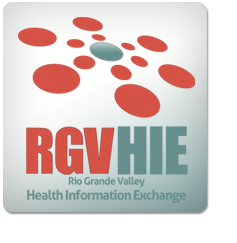Personal Health Records by Katherine M. Barocio
Many don’t understand or simply under estimate the importance of personal health records. Most people have their health information scattered amongst different providers, allowing for duplicate procedures and processes. This can be dangerous, financially and for your health. Without the most current and updated information available to the provider, it can affect the medical decisions one makes and in turn affect you.
Ideally, a personal health record or PHR is an internet based set of tools that allows people to access and coordinate their lifelong health information and make appropriate parts of it available to those who need it. It holds the potential of engaging patients in their own healthcare with the ultimate purpose of improving overall quality and health outcomes.
The PHR is a comprehensive health record, where all information from within comes from Electronic Health Records (EHR), Pharmacies, Authorized users, and Patient entered data, it is controlled by the patient. The PHR comes in different forms such as:
- Freestanding- Entirely owned by the patient and usually hosted through an internet-based platform, and is not “officially” associated with any record
- Tethered- A PHR that is hosted by a health care provider and is linked to his or her EHR.
- Sponsored- A PHR that is provided by a patient’s health insurance plan, or employer, and is populated with information based upon claims data.
The efforts to engage in Personal Health Records are driven by the belief that it holds value for patients, providers, and the communities in which they live to improve health care delivery. Consumers have the greatest opportunity to expand their role in their own healthcare. Its functions include, 24 hour access to health information, communication with providers, education regarding the patient health, and most importantly, privacy.
The Veterans Health Administration has seen great success with its Online PHR “My HealtheVet”, an award winning PHR that has occupied 35% of the veteran population. With integrated 24 hour secure messaging it has promoted the partnership between patients and providers while providing a safe alternative means of communication. A prime example to one of many solutions concerning quality care improvement.
Centers for Medicare and Medicaid Services recently released its proposed regulations for Stage 2 Meaningful Use. It includes numerous hospital and physician requirements such as secure messaging platforms by 2014. It will also emphasize provider accountability for 10 percent of its patients to have online access to patient health information via PHR or web portals to achieve Meaningful Use.
However, current awareness of the capability and benefits of PHR’s is low. The adoption and investment of PHR’s requires health providers and practices to actively promote its benefits, as most patients would prefer to have a PHR sponsored by their physician. The rapid use of Electronic Health Records adoption by physicians will accelerate deployment of Personal Health Records. Ideally Patient Health Records will serve a major role in this evolving health care system and engage consumers to aid in improving their own health goals.



